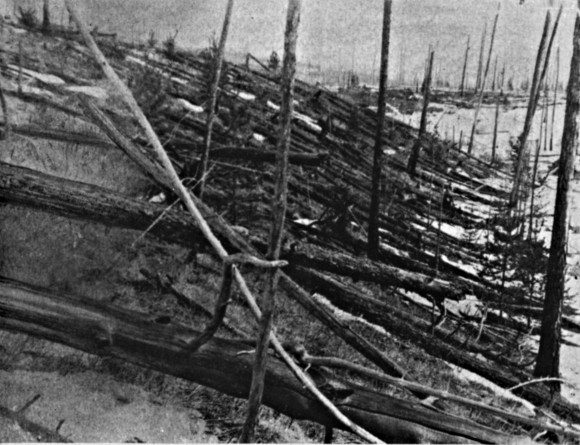| Online: | |
| Visits: | |
| Stories: |

| Story Views | |
| Now: | |
| Last Hour: | |
| Last 24 Hours: | |
| Total: | |
Experts Question Claim Tunguska Meteorite May Have Come from Mars
In 1908 a blazing white line cut across the sky before exploding a few miles above the ground with a force one thousand times stronger than the nuclear blast that leveled Hiroshima, Japan.
The resulting shock wave felled trees across more than 800 square miles in the remote forests of Tunguska, Siberia.
For over 100 years, the exact origins of the Tunguska event have remained a mystery. Without any fragments or impact craters to study, astronomers have been left in the dark. That’s not to say that all kinds of extraordinary causes haven’t been invoked to explain the event. Various people have thought of everything from Earth colliding with a small black hole to the crash of a UFO.
Russian researchers claim they may finally have evidence that will dislodge all conspiracy theories, but that “may” is huge. A team of four believes they have recovered fragments of the object — the so-called Tunguska meteorite — and even think they are Martian in origin. The research, however, is being called into question.
(…)
Read the rest of Experts Question Claim Tunguska Meteorite May Have Come from Mars (702 words)
© Shannon Hall for Universe Today, 2014. |
Permalink |
No comment |
Post tags: Astronomy, Curiosity Rover, Earth, Mars, Meteorites, meteors, Tunguska
Feed enhanced by Better Feed from Ozh
Source: http://www.universetoday.com/108998/experts-question-claim-tunguska-meteorite-may-have-come-from-mars/




